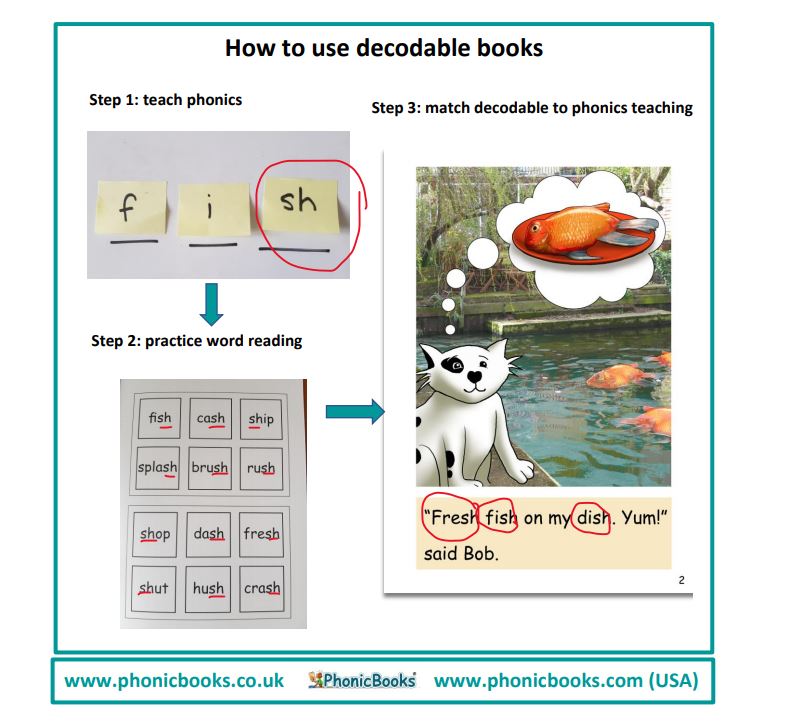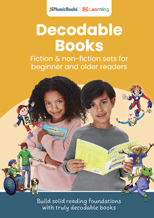The Department for Education has announced that is it ‘retiring’ the ‘Letters and Sounds’ programme which was published in 2007. In its place, it is asking publishers to submit their phonics programmes for revalidation. Initially, the DfE planned to update ‘Letters and Sounds’ but then decided to allow schools to create programmes, based on their successful practice. Schools and publishers must now apply for validation of their Systematic Synthetic Phonics (SSP) programmes. The validation process will follow clear criteria listed by the DfE.
What’s the big deal?
The big deal is that many schools opted for using ‘Letters and Sounds’ (a free resource published by the DfE). Some publishers have based their progression on ‘Letters and Sounds’. The news that it is no longer fit for purpose is BIG! The DfE announced that by Spring 2022 the programme will be archived, as it was not a complete SSP programme to begin with, and has elements missing that are now required in the National Curriculum.
So, what happens to schools using ‘Letters and Sounds’?
Schools will need to assess how successful their phonics teaching is. If it is rigorous, systematic and follows a programme with fidelity – they can continue doing what they are doing. It is not mandatory to use a validated programme. Phew!
If a school is struggling to provide a successful SSP programme it can receive support from a Phonics Hub or choose one of the validated programmes. The list of validated programmes will be published in spring/summer 2022. In the future, the Phonics Hubs will only recommend a validated SSP programme.
What about decodable books?
Decodable books are an integral part of any phonics programme. They provide practice for the phonics taught in the lesson and are now a mandatory part of the National Curriculum. Schools will need to show that the decodable books they are using are indeed decodable (not all decodable books are!) and that they support the progression of their phonics teaching (Grapheme/Phoneme Correspondences – GPCs).
Does my school need to purchase new decodable books?
No, it doesn’t. What you need to show is that the decodable books you are using are supporting your phonics teaching. This means that children have been taught the letter/sound correspondences BEFORE they read the books.
How can I use the decodable books I already have?
Make sure that you know the progression you are following and align the decodable books to follow that progression with fidelity. This way the decodable books will support your teaching.
Have the Phonic Books decodable books been validated?
Phonic Books decodable books were approved by the Department of Education in 2013 for the Match-Funding initiative. As part of the Sounds-Write programme they have been resubmitted for validation. We expect our books to be validated in the Autumn of 2021.
Do you need to follow Sounds-Write in order to use our books?
No you don’t. Our books are used by schools that follow various programmes, including ‘Letters and Sounds’, very successfully. You don’t need to follow the Sounds-Write Programme to use them.
What are the advantages of using Phonic Books as your decodable books?
Phonic Books decodables were created by three dyslexia and reading specialists. Here is why you should consider using them:
- They are truly decodable
- They can be used with any phonics programme
- They are highly structured, with cumulative progression, so that all children learn to read
- Each book has the graphemes (spellings) clearly printed on the front cover – to help you match the books to your phonics teaching
- Each book has the phonic sequence and scope of the series clearly presented – to help you plan how you will match the books to your phonics programme
- They are designed to engage and motivate beginner readers
- They offer multiple books at each stage to ensure sufficient reading practice
- They offer a unique range of age-appropriate, exciting books for older, struggling readers
- They are complemented by easy-to-use workbooks for further reading support
To see our range of decodable books for beginner readers https://www.phonicbooks.co.uk/product-category/beginner-readers/
To see our range of decodable books for older, struggling readers https://www.phonicbooks.co.uk/product-category/catch-up-readers/
To read the DfE document visit: https://educationhub.blog.gov.uk/2021/05/17/the-removal-of-letters-and-sounds-2007-from-the-departments-list-of-validated-phonics-programmes-teachers-questions-answered/
If you have any questions about our books, contact us at info@phonicbooks.co.uk



Thank you.